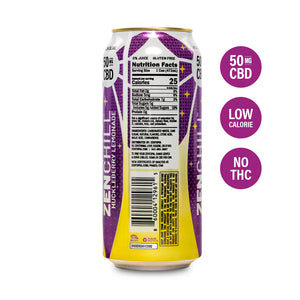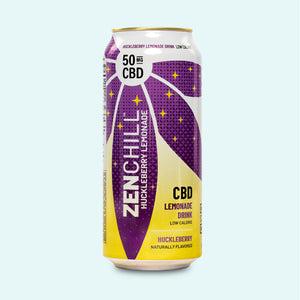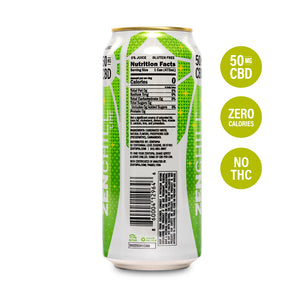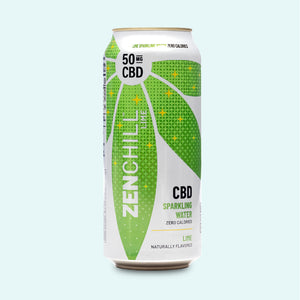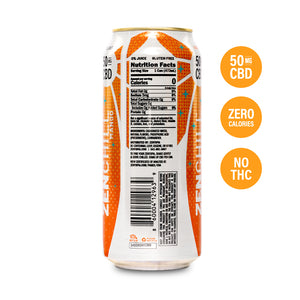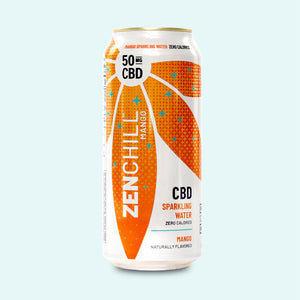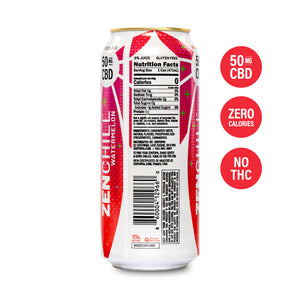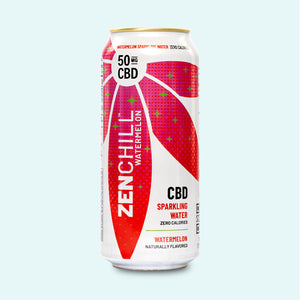
How Long Does CBD Stay in Your System?
CBD (Cannabidiol) has rapidly gained popularity for its potential therapeutic benefits, from reducing anxiety and pain relief to promoting relaxation and better sleep. As its use becomes more widespread, CBD is available in various forms, including CBD drinks, oils, edibles, capsules, topicals, and vapes. However, many CBD users ask a key question: How long does CBD stay in your system? This question is especially important for individuals concerned about drug tests, the potential for side effects, or those curious about how long the effects will last.
In this article, we will explore the factors that affect CBD retention, the different methods of consumption, and what you can do to eliminate it faster from your system.
What Is CBD?
Definition and Origin of CBD
CBD, or Cannabidiol, is one of the primary compounds extracted from the cannabis plant. Unlike THC (Tetrahydrocannabinol), which is known for its psychoactive effects, CBD is non-psychoactive, meaning it does not induce a "high." Instead, it is celebrated for its calming and therapeutic effects.
CBD is typically extracted from hemp, a strain of the cannabis plant with very low THC content (below 0.3%), making it a popular legal alternative to marijuana.
Different Ways to Consume CBD
CBD Drinks
CBD drinks like CBD sparkling waters, teas, juices, and sodas offer a quick and convenient way to consume CBD. These drinks typically provide a mild, steady dose of CBD, and they are becoming increasingly popular due to their ease of use and pleasant flavors.
Oils, Edibles, Capsules, Vapes, and Topicals
Other popular consumption methods include:
- CBD oils and tinctures: Sublingual application (under the tongue) for faster absorption.
- Edibles and capsules: Slower to absorb but offer long-lasting effects.
- Vaping or smoking: Fastest absorption, but shorter duration.
- Topicals: Creams or balms for localized effects with minimal systemic absorption.
How Does CBD Interact With Your Body?
The Endocannabinoid System (ECS)
CBD interacts with the body's Endocannabinoid System (ECS), a complex network of receptors and enzymes that regulate various bodily functions, including mood, pain sensation, and immune response. The ECS works to maintain homeostasis, or balance, within the body. CBD interacts with ECS receptors, particularly CB1 and CB2, helping to modulate processes like inflammation, pain, and stress.
Absorption and Metabolism of CBD
The way CBD is absorbed and metabolized depends on the method of consumption. For instance, CBD drinks or edibles must pass through the digestive system before entering the bloodstream, leading to a slower onset of effects. On the other hand, CBD vapes are absorbed directly into the bloodstream through the lungs, providing rapid relief.
Once in the body, CBD is broken down by the liver into metabolites. These metabolites are stored in fat cells and are eventually eliminated through urine, feces, and sweat. This process affects how long CBD stays in your system, which can vary based on numerous factors.
How Long Does CBD Stay in Your System?
General Duration of CBD in the Body
CBD can stay in your system for different periods depending on factors such as the method of consumption, dosage, frequency of use, and individual metabolism. In general:
- Blood: CBD can be detected in the bloodstream for 2 to 6 hours after consumption.
- Urine: CBD is typically detectable in urine for 2 to 5 days.
- Saliva: Detection lasts 1 to 2 days.
- Hair: Hair follicle tests can detect CBD for up to 90 days.
Factors That Affect CBD Retention
Method of Consumption
- CBD drinks, oils, edibles, vapes, and topicals have different absorption rates, impacting how long they stay in the system. For example, vapes are quickly absorbed but leave the system faster than edibles, which are slow to digest and release over time.
Dosage
The higher the dosage, the longer CBD is likely to remain in your system.
Frequency of Use
If you use CBD regularly, it can build up in your system, leading to longer detection times compared to occasional use.
Metabolism, Weight, and Lifestyle
Your metabolism, body fat percentage, and overall lifestyle (exercise, hydration) also play a crucial role in how quickly your body processes and eliminates CBD.
How Long Does CBD Stay in the Blood?
Blood Detection Window
CBD has a relatively short detection window in the bloodstream, typically between 2 to 6 hours. This is why blood tests are rarely used to detect CBD, and they are more common for THC.
How Long Does CBD Stay in Urine?
CBD Detection in Urine
CBD is detectable in urine for 2 to 5 days after use, depending on the factors mentioned earlier. It’s important to note that CBD-specific urine tests are rare. Most standard drug tests focus on THC. However, using full-spectrum CBD products, which contain trace amounts of THC, could trigger a positive result.
How Long Does CBD Stay in Saliva?
Saliva Test Detection
Saliva tests are becoming more common for detecting both THC and CBD, particularly for roadside tests. CBD can be detectable in saliva for 1 to 2 days after consumption, depending on the dose and method of consumption.
How Long Does CBD Stay in Hair?
Hair Follicle Tests for CBD
While not commonly used, hair follicle tests can detect CBD for up to 90 days after use. This is because trace amounts of CBD are stored in hair cells as they grow. However, these tests are usually more focused on THC detection.
How Long Does CBD Stay in Your System Based on the Form of Consumption?
CBD Drinks (Sparkling Waters, Teas, and Lemonades)
CBD drinks are absorbed through the digestive system and typically take 30 minutes to 2 hours to take effect, depending on factors like whether you’ve eaten recently. Their effects can last for 4 to 6 hours.
Edibles and Capsules
Edibles and capsules have a longer absorption time, often taking 1 to 2 hours to produce noticeable effects. They can last for 6 to 8 hours due to the slow release of CBD into the bloodstream.
Oils and Tinctures
Oils and tinctures, taken sublingually, provide faster absorption. Effects can be felt within 15 to 30 minutes, with a duration of 2 to 6 hours.
Vaping or Smoking
Vaping or smoking CBD provides instant absorption through the lungs, with effects noticeable within minutes. However, the duration of effects is typically 1 to 3 hours.
Topical CBD Products
Topical CBD products, like creams or balms, are absorbed through the skin and target localized areas. They rarely enter the bloodstream in significant amounts, making systemic detection unlikely.
Can CBD Show Up on a Drug Test?
Will CBD Drinks or Other Products Trigger Positive Results?
CBD itself does not show up on standard drug tests, but full-spectrum CBD products contain trace amounts of THC, which could potentially cause a positive result.
Full-Spectrum vs. Broad-Spectrum vs. Isolate
- Full-Spectrum: Contains all cannabinoids, including THC (<0.3%).
- Broad-Spectrum: Contains all cannabinoids except THC.
- Isolate: Pure CBD with no other cannabinoids.
If you're concerned about drug tests, opt for broad-spectrum or CBD isolate products. Here at Zentopia, we use 100% CBD isolate in our beverages which does not get flagged on a drug screen. We test the ingredients acquired before each batch, as well as every batch that comes off the line to ensure that our products are contain 0.00% THC. You can view our Certificates of Analysis (COA) here. We also have a comprehensive article with all the details you need to answer the common question “Does CBD show up on drug tests?”
How to Get CBD Out of Your System Faster
Hydration and Detox
Drinking water and staying hydrated can help flush CBD from your system. Additionally, some people opt for natural detox methods to speed up elimination.
Exercise and Metabolism
Regular exercise can boost your metabolism and help your body eliminate CBD more quickly. Sweat and fat loss can also contribute to faster clearance.
Does CBD Build Up in Your System Over Time?
Regular Use and Accumulation
Frequent use of CBD can lead to accumulation in fat cells, especially for those with higher body fat percentages. As CBD stores in your fat, it may take longer to eliminate it from your system, sometimes requiring up to a week for heavy users.
Can CBD Cause Side Effects?
Common Side Effects of CBD
Some common side effects of CBD may include:
- Drowsiness
- Dry mouth
- Diarrhea
- Reduced appetite
Duration of Side Effects
The duration of side effects depends on the form of CBD consumed. For example, CBD drinks may cause effects that last for several hours, while vapes may only produce short-term side effects.
Frequently Asked Questions (FAQ) About CBD and System Retention
Will CBD drinks affect how long CBD stays in my system?
Yes, like all forms of CBD, drinks will impact retention times. However, they typically offer moderate absorption and duration compared to other forms.
How long after drinking CBD can I drive?
It's recommended to wait at least 4 to 6 hours after consuming a CBD drink before driving, as effects can last for several hours.
Can consuming CBD drinks daily lead to accumulation in the body?
Yes, daily consumption can lead to CBD accumulation, especially in fat cells.
Will drinking water help get CBD out of my system faster?
Yes, staying hydrated can help your body process and eliminate CBD faster.
Can CBD drinks show up on a drug test if they contain THC?
If the CBD drink contains full-spectrum CBD, which may have trace amounts of THC, it could potentially cause a positive result on a drug test.
Final Thoughts on How Long CBD Stays in Your System
The retention of CBD in your system depends on various factors, such as the method of consumption, dosage, and frequency of use. While CBD itself won’t show up on a standard drug test, using full-spectrum products could lead to a positive test due to the presence of THC. If you are concerned about drug testing, opt for broad-spectrum or CBD isolate products.
For those seeking a convenient and enjoyable way to consume CBD, Zentopia offers a variety of good-for-you, feel-good drinks, including sparkling waters, teas, and lemonades, which can provide a steady and reliable dose of CBD without the hassle of other consumption methods.
Additional Resources



